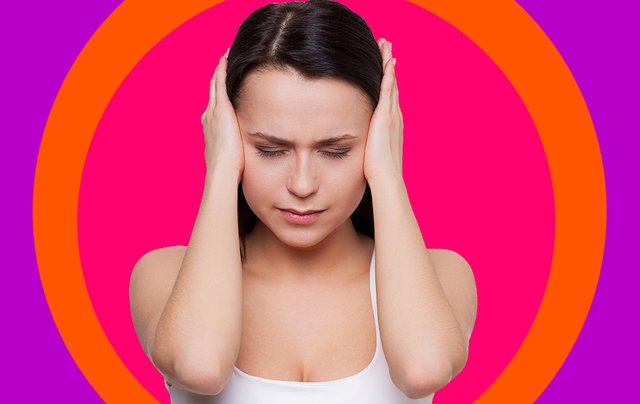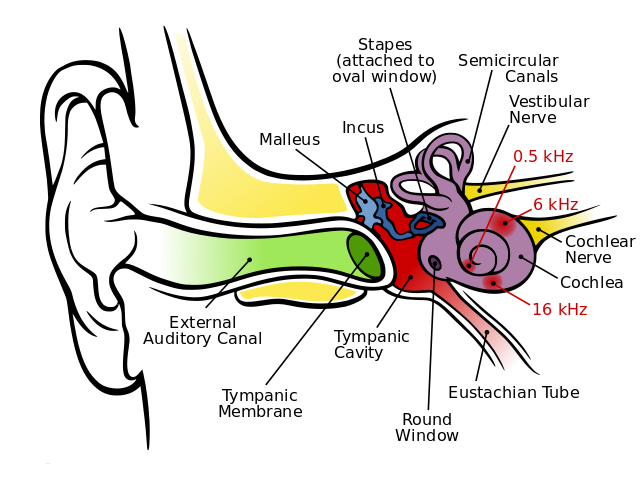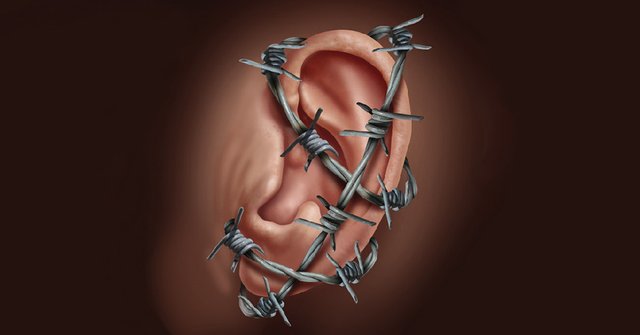
Would you willingly destroy your sense of hearing?
Would anyone?
Of course the answer is no, but the data seems to tell a different story. Preventable, noise-induced hearing loss is on the rise like never before and it’s becoming a big problem.
Rock stars are retiring and who can blame them? Many musicians are finding themselves faced with the choice of retirement or going deaf. Even more report developing Tinnitus.
And teens are experiencing hearing loss in record numbers, too. In fact, they’ve been hit the hardest of all.
So what’s happening here? In 2016, why are we facing an unprecedented epidemic of hearing loss?
There are many factors, but the short answer is that we are unwittingly exposing ourselves to dangerously loud levels of sound more often than we ever have before.
We have to take steps to protect our hearing at all costs, before it’s too late.
The Problem:
Whether you realize it or not, you probably have at least some idea of what it’s like to live with hearing loss. Tinnitus too. If you've ever heard ringing in your ears after a loud concert, you'll know exactly what I mean.
Exposure to excessively loud sounds, even for a short period of time will often cause temporary hearing loss and ringing in your ears. It’s a result of how we process sound.
Sound waves first enter through the ear canal and hit the ear drum, which translates the air pressure waves into physical vibrations, and sends them to the middle ear. Next, the three tiny bones of the middle ear, the anvil, hammer, and stirrup, send these vibrations into the fluid-filled cochlea in the inner ear.
Inside of the cochlea, microscopic sensory organs called hair cells transform these waves into the electrical signals our brain can understand.

The problem is that loud sounds cause physical damage the hair cells which results in temporary hearing loss.
The hair cells can heal themselves to some extent, but not indefinitely. Over time, with repeated exposure to loud sounds, the hair cells will die off completely, leaving you with permanent hearing loss.
And while there is promising research into hair cell growth, there is currently no way to regenerate these hair cells once they’re gone.
In a very real sense, our hearing is a limited resource. We can only hear so many loud sounds before our hearing starts to diminish.
How Loud is too Loud:
The first thing you need to know is that sound is measured in decibels. To give you a point of reference, here are the decibel ratings of several common sounds:
- A whisper – 20 decibels
- The humming of a refrigerator – 45 decibels
- Normal conversation - 60 decibels
- Noise from heavy city traffic – 85 decibels
- Motorcycles – 95 decibels
- An MP3 player at maximum volume – 105-120 decibels
- Rock Concerts, live music, sporting events – 108-120 decibels
- An ambulance siren – 120 decibels
- A Jet engine at take off – 140 decibels
- Firecrackers and firearms – 150 decibels
- A Rocket Launch – 180 decibels
According to the National Institute on Deafness and Other Communication Disorders (NIDCD), 85 decibels is the danger threshold. Listening to sound at 75 decibels or lower, even for extended periods of time, will not cause permanent damage. But anything from 85 decibels and up will.
(New research suggests that the actual safe volume level may actually be much lower)
In fact, if a sound is loud enough, it can cause immediate permanent damage to your hearing.
But even when the hearing loss is temporary, there is still damage being done. Remember, our hearing is a finite resource. Once our hair cells die off, there is no coming back.
Repeated loud sound exposure will lead to hearing loss in the long run 100% of the time.
Youth at Risk:
While loud sounds don’t discriminate, the rate of hearing loss among young people is worse than it’s ever been before.
According to a 2015 report from the World Health Organization (WHO):
“Some 1.1 billion teenagers and young adults are at risk of hearing loss due to the unsafe use of personal audio devices, including smartphones, and exposure to damaging levels of sound at noisy entertainment venues such as nightclubs, bars and sporting events, according to WHO. Hearing loss has potentially devastating consequences for physical and mental health, education and employment.
Data from studies in middle and high-income countries analyzed by WHO indicate that among teenagers and young adults aged 12-35 years, nearly 50% are exposed to unsafe levels of sound from the use of personal audio devices and around 40% are exposed to potentially damaging levels of sound at entertainment venues. Unsafe levels of sounds can be, for example, exposure to in excess of 85 decibels (dB) for eight hours or 100dB for 15 minutes.”
The rise of smart phones and ear bud headphones are definitely not helping the problem, either.
In 2010 a study was published in the Journal of the American Medical Association, showing 32% increase in hearing loss among American teens over the previous decade. According to the study, 1 in 5 teens in America now suffer some degree of hearing loss.

The problem seems to stem from a lack of understanding. Dr. Etienne Krug, the World Health Organization Director of the Department for Management of Noncommunicable Diseases, notes, “As they go about their daily lives doing what they enjoy, more and more young people are placing themselves at risk of hearing loss.”
The good news is that we can do something about it. Noise-induced hearing loss is entirely preventable.
How to Protect your Hearing:
The good news is that there are a ton of simple things we can do to prevent noise-induced hearing loss. And because hearing loss is permanent, a good defense is the best offense.
Be aware of your sound environment - Knowing when the noise level is too loud is half the battle. It gives you options. You can download a free decibel meter app for your smart phone: Android / IOS.
Turn down the volume of your music to safer levels - Most headphones and music players can go up to 120 decibels, the same damaging level as loud concerts. According to Dr. Foy, an Osteopathic pediatrician and expert in child hearing loss, “If you can’t hear anything going on around you when listening to headphones, the decibel level is too high." Dr. Foy suggests listening to music with the volume at 60%.
Choose the right kind of Headphones - Over the ear headphones are a better choice than ear buds because the speaker is farther from the ear drum. But the best choice is noise-cancelling over the ear headphones. By reducing background noise, you can enjoy your music at lower volume levels.
High-Fidelity Earplugs – If you are going to be in a loud environment for an extended period of time, wearing earplugs is a good idea. The problem is that regular earplugs muffle and distort the quality of sound, making it hard to carry on conversations, or enjoy live music if you’re at a concert.

(Image Source: Bestbuyhearingaids)
High-fidelity earplugs solve both of these problems by reducing the decibel level of sound without muffling the quality. If you’ve never tried these before, they are game changers. I highly recommend the highly discreet (you can't see them once they're in) Eargasm Earplugs.
Conclusion:
It’s a shame that hearing loss isn’t talked about more often. We can do so much better as a society to raise awareness.
I also wish I knew about all of this when I was younger. Looking back, I know I did a lot of damage to my ears. I constantly listened to loud music with headphones and went to so many loud concerts.
Once, when I was 17, I stood so close to the speakers at a music festival that for 3 days the world sounded as though it was filtered through a tin can.
Our hearing is such a precious resource, and one I took for granted for far too long. But today I’m taking action to keep it for as long as I can.
I hope you follow in my footsteps and protect your hearing, too.
Source: http://www.rewiringtinnitus.com/we-have-to-protect-our-hearing/
Copying/Pasting articles without permission is copyright infringement. If you want to share a news story, simply link to the source, and include your original commentary, and possibly small quotes from source. Copy paste is discouraged by the community, and may result in action from the cheetah bot.
Creative Commons: If you are reposting under a Creative Commons license, please attribute and link according to the specific license. If you are reposting under CC0 please consider noting that at the end of your post.
If you are actually the original author, please do reply to let us know
Downvoting a post can decrease pending rewards and make it less visible. Common reasons:
Submit
Hi @steemcleaners I am the original author and rewiringtinnitus.com is my website. Heres verification from my intro post: http://www.rewiringtinnitus.com/hi-steemit/
Downvoting a post can decrease pending rewards and make it less visible. Common reasons:
Submit
Thank You! ☙
Downvoting a post can decrease pending rewards and make it less visible. Common reasons:
Submit
Hi! I read your introductory post as well as this post (about tinnitus/hearing loss) and I'm glad I did. Your experiences with tinnitus and also Meniere's have some parallels with my own. I have never been diagnosed with Meniere's, but I'm starting to wonder if it may have been playing a role in my life and we (my family) just didn't know it.
Why do I wonder? Well, I was diagnosed with hearing loss at the age of about 3 years old or so, when my family realized that if I had my back turned to them, I didn't respond to them talking to me. We didn't know where the deafness came from, but today it is generally thought to be the result of a CMV (cytomegalovirus) infection in my mother at the time she was pregnant with me. That's what we think it is, but it's not been conclusively proven.
When I read your introductory post and you were discussing your symptoms from Meniere's, it struck a chord with me, because I had an episode when I was about 10 years old, that sounded remarkably similar. Right around the same time that I got my first hearing aids, I had a couple episodes of the sensation of the world spinning around me. It made me nauseous and all I could do was go to sleep. We thought it was migraines. I suspect that around that same time is when I started having tinnitus. I've had it for as long as I can remember, and today I treat it like it's just my memories of sound. (My hearing loss progressed to the point where even the strongest hearing aid didn't help me any more, and I began learning sign language and joined the deaf community, when I was 22. Thankfully, I didn't miss the music of the 80's.)
So now, I wonder- could there be some connection between CMV infections and Meniere's? As far as I know, the way CMV works is not understood very well, even though I have heard of it being commonly used as a sort of catalyst in science lab experiments. Do you have any thoughts on this?
BTW- I hope you'll read my introductory post. I have a feeling you may have some valuable feedback, if you have the time. I'm still very new to Steemit but I like it!
Regards,
Kevin
Downvoting a post can decrease pending rewards and make it less visible. Common reasons:
Submit
Interesting Post, As a student becoming an interpreter, This caught my eye, dropping a follow for more interesting posts.
Downvoting a post can decrease pending rewards and make it less visible. Common reasons:
Submit